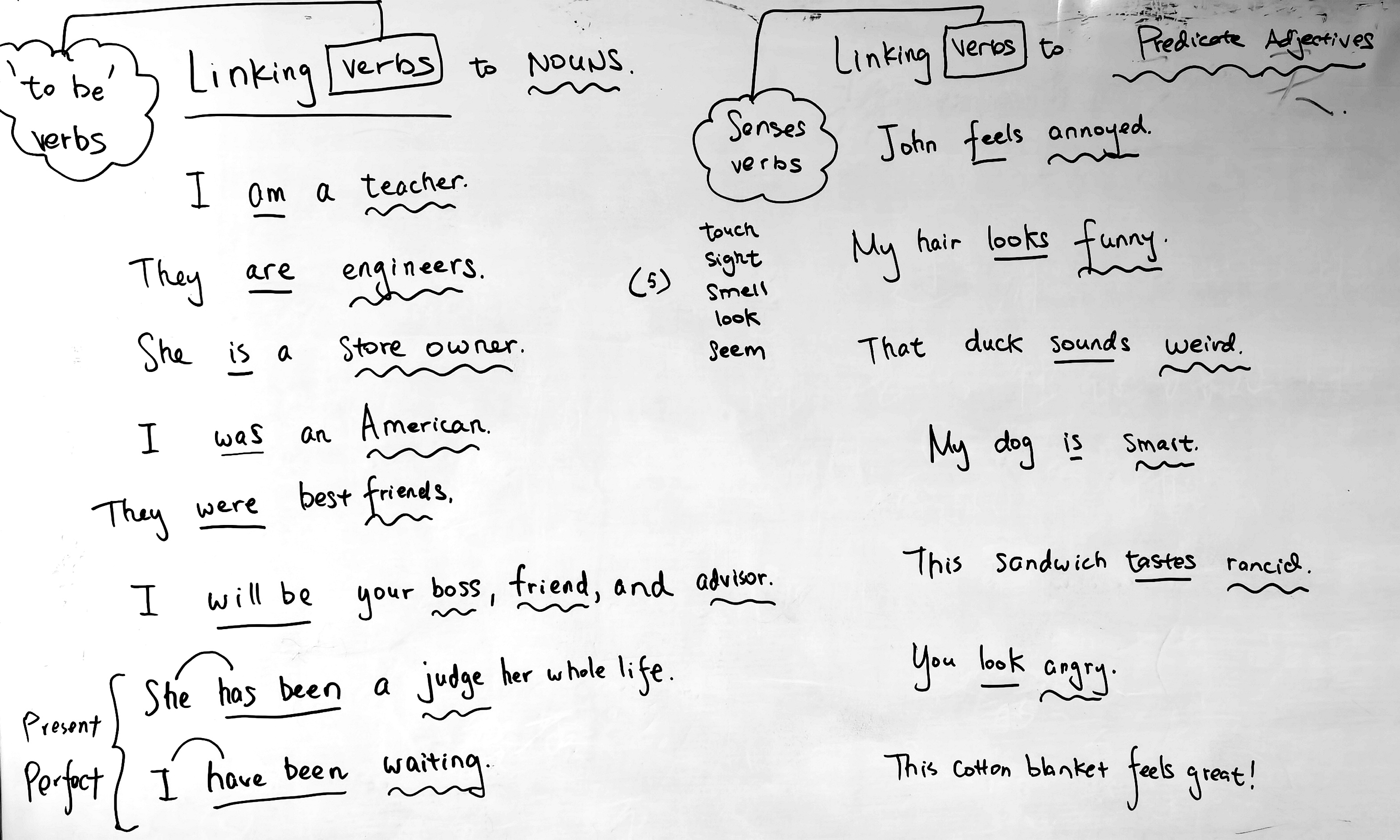ref –
- https://www.grammar-monster.com/glossary/subject_complement.htm
- https://www.grammar-monster.com/glossary/predicate_nominative.htm
What is a subject complement?
A subject complement is a word or phrase that appears after a linking verb in a sentence and is closely related to the sentence’s subject—identifying, defining, or describing it. A subject complement’s job, along with a linking verb, is to clarify the subject of a sentence. Subject complements never appear without linking verbs, and linking verbs never appear without them.
Note that a linking verb links the subject to its complement (subject complement). It is followed by either a noun or an adjective. So, a linking verb works like a bridge that connects two parts: the subject and the subject complement.
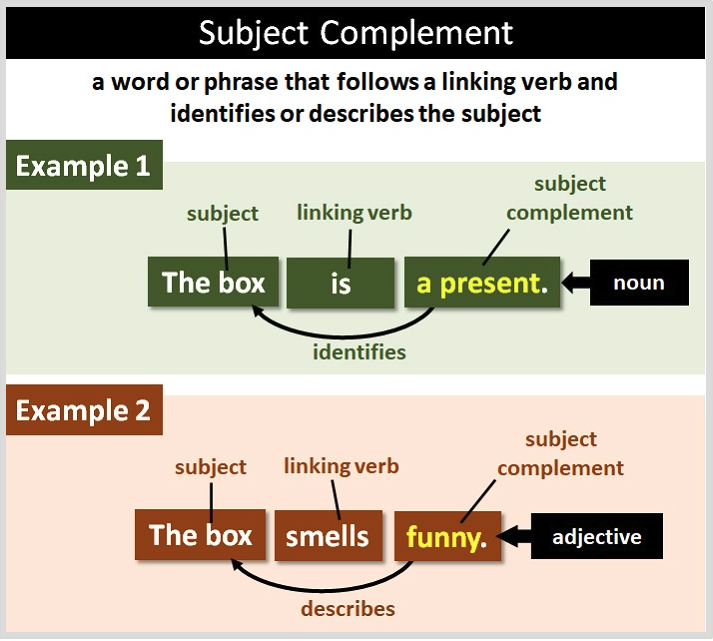
Easy Examples of Subject Complements
In the examples below, the linking verbs are in bold and the subject complements are shaded:
Ben is a policeman.
(The linking verb is “is” (i.e., the verb “to be”). The subject complement identifies the subject “Ben.” It is a noun.)
He will be fine.
(The linking verb is “will be” (i.e., the verb “to be”). The subject complement describes the subject “He.” It is an adjective.)
I am he.
(The linking verb is “am” (i.e., the verb “to be”). The subject complement identifies the subject “I.” It is a pronoun.)
Types of Subject Complement
Predicative Nominative
Subject complements that are headed by nouns or pronouns are called predicate nominatives.
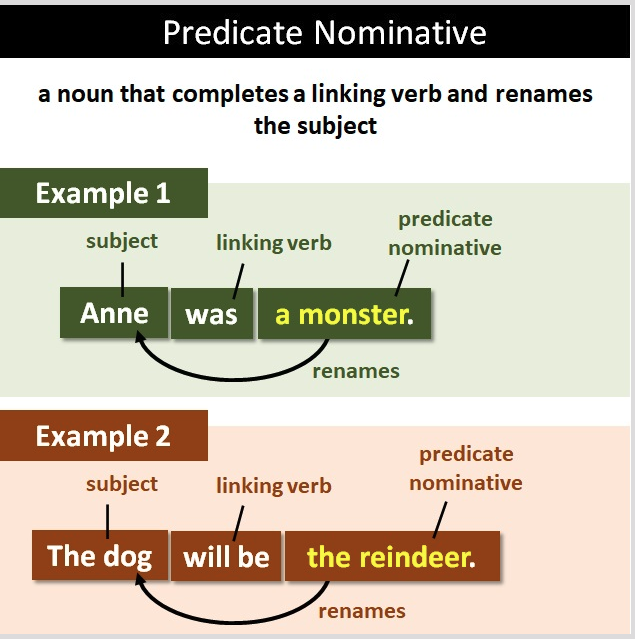
A predicate nominative is always a noun or a pronoun.
In other words, a predicate nominative follows a linking verb, which is a verb that connects the subject with another word that describes or modifies it.
For example:
I am a ghost
(In this example, “ghost” is a noun. It heads the noun phrase “a ghost.” Therefore, “a ghost” is a predicate nominative.)
Reece was a politician.
‘politician’ is a noun. It describes Reece’s occupation.
A dog is man’s best friend.
Subject – A dog
linking verb – is
predicate nominatives – man’s best friend. (noun phrase)
(In this case, our predicate nominative is a noun phrase, i.e., a noun made up of more than one word.)
She will be the fairy.
Subject – She
linking verb – will be
predicate nominative – the fairy.
I could have been a contender.
Subject – I
linking verb – could have been
predicate nominative – a contender.
The best chair is the red one.
Subject – best chair
linking verb – is
predicate nominative – the red one
Remember that a predicate nominative, as shown in our examples above, is a noun (or a pronoun) that renames the subject.
What Is a Compound Predicate Nominative?
A predicate nominative can be made up of more than one noun. In other words, it can be a compound.
For example:
The new law is an opportunity and a risk.
(An opportunity and a risk is a compound predicate nominative.)
I will be your employer, your friend, and your uncle.
(Your employer, your friend, and your uncle is a compound predicate nominative.)
Subject complements that are headed by adjectives are called predicate adjectives.
framework: subject + linking verb + predicative adjective
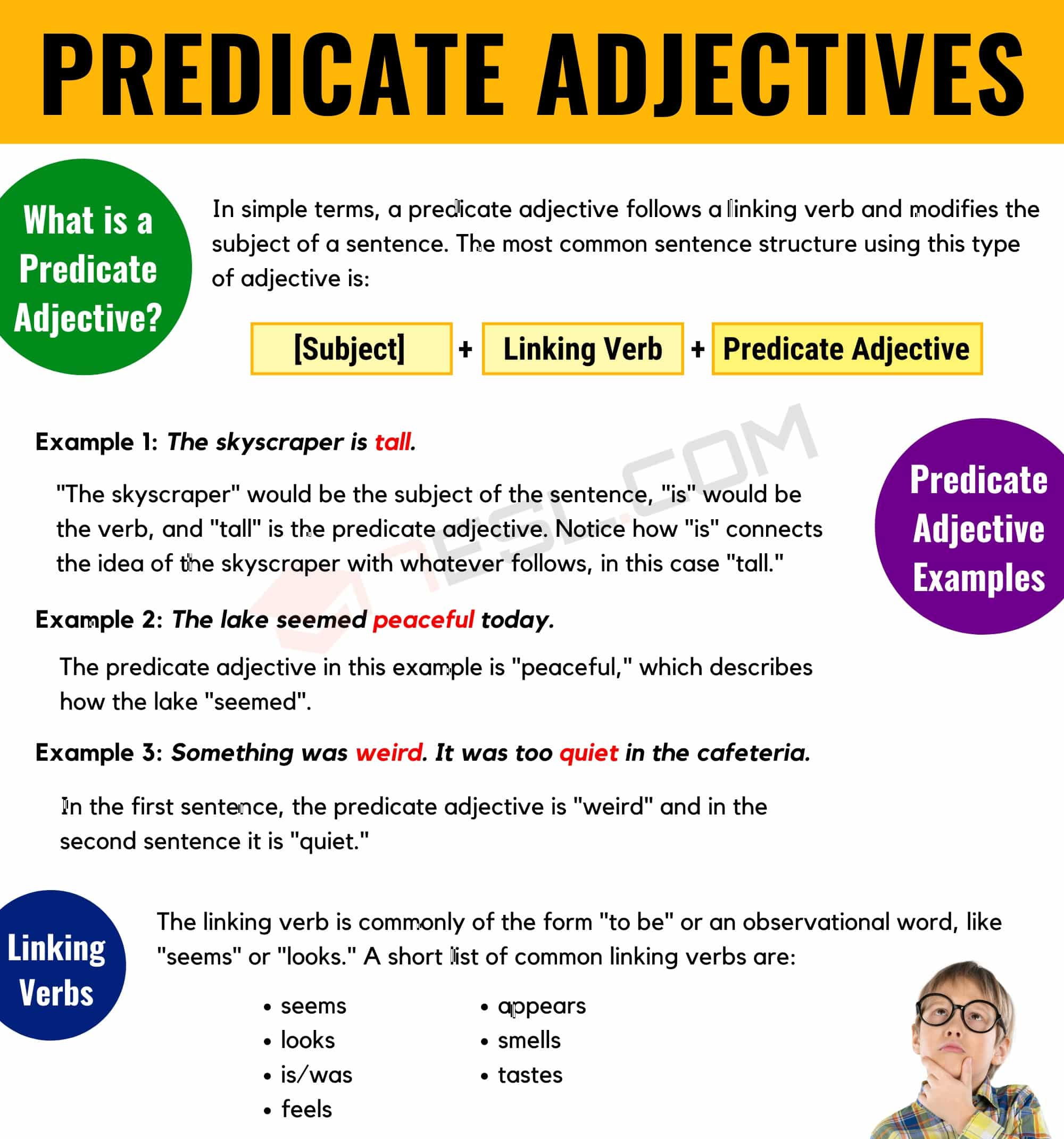
For example:
I am extremely happy.
(In this example, “happy” is an adjective. It heads the adjective phrase “extremely happy.” Therefore, “extremely happy” is a predicate adjective.)
My hair looks funny.
subject – My hair
linking verb – looks
adjective – funny
That duck sounds loud.
Subject – That duck
linking verb – sounds
adjective – loud
Maria feels annoyed.
Subject – Maria
linking verb – feels
adjective – annoyed
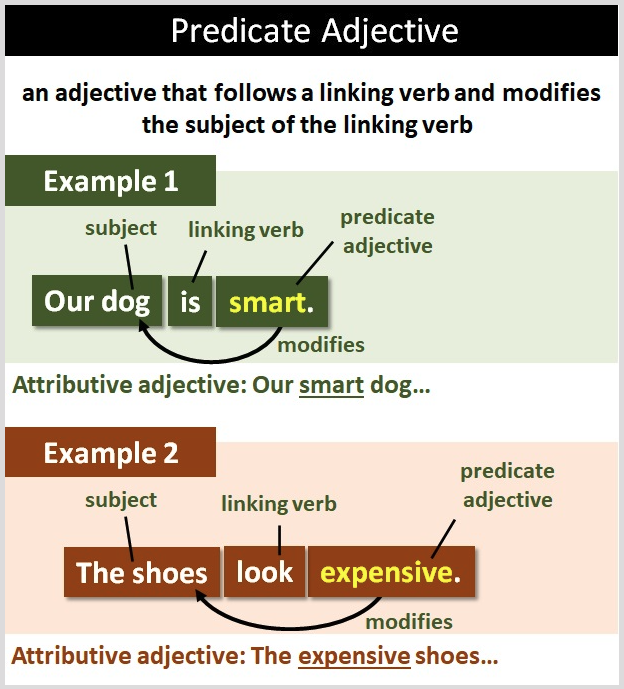
John is brilliant.
(The adjective ‘brilliant’ is a predicate adjective, not a predicate nominative. Of note, predicate adjectives and predicate nominatives are classified as subject complements, but they are not the same.)
It feels great.
(The adjective great is a predicate adjective not a predicate nominative.)
Now compare these two examples:
The sea is dangerous.
(The adjective dangerous is a predicate adjective, not a predicate nominative.)
The sea is a danger.
(The noun a danger is a predicate nominative.)
Tips and Tricks – Identifying Predicate Adjectives
The trick to identifying predicate adjectives is spotting linking verbs. The linking verbs include the following:
The verb to be (in its various forms, e.g., am, are, is, was, were, will be, has been, have been).
The sense verbs (e.g., to feel, to look, to smell, to taste, to sound).
The status verbs (e.g., to appear, to become, to continue, to grow, to seem, to turn).
